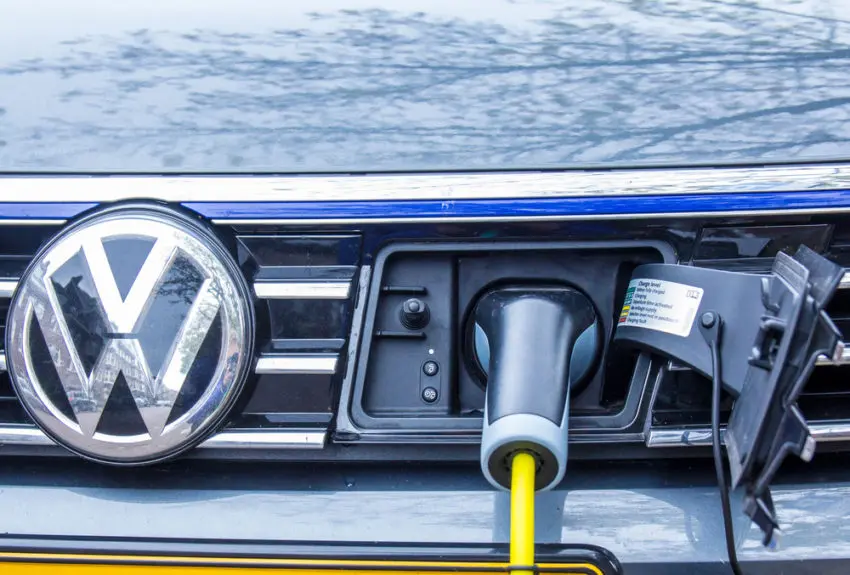Drivers in European countries bought twice as many electric cars as their British counterparts last year as the government significantly reduced grants for green vehicles.
Sales of cars powered solely by battery were more than twice as high in France and Germany, adding to concerns over “sluggish” demand in the UK and questions over how the government will reach its targets for phasing out new petrol and diesel cars.
Norway sold three times as many electric cars as Britain while the Netherlands had sales that were 70 per cent higher, even though both countries have much smaller populations.
A report by the European Automobile Manufacturers Association (EAMA) also showed that the rise in sales recorded in the UK last year was smaller than for any European country apart from Switzerland. The increase — 13.8 per cent year on year — was about a quarter of the European average.
Last autumn the government made the controversial decision to cut the grant for buyers of new ecofriendly cars, making them more expensive. The grant for pure electric cars was reduced from £4,500 to £3,500 and incentives for plug-in hybrids, which run on a combination of battery power and combustion engines, were abolished.
Electric cars cost up to £10,000 more than their petrol or diesel equivalents and the government has acknowledged that the gulf in price is unlikely to close until the mid-2020s at the earliest.
Last night the Department for Transport insisted that the UK was at the “forefront” of green cars in Europe, pointing out that Britain accounted for a fifth of all battery-electric vehicles built on the continent last year.
Motor industry leaders said that the cut to grants risked undermining the country’s ambitions to promote green vehicles. Research by the International Council on Clean Transportation shows that electric cars are already cheaper to own and run than petrol or diesel alternatives over four years. However, upfront price remains a huge factor in the buying process and is often cited by motorists as the biggest barrier to choosing electric and hybrid cars.
Pure battery cars, which are among the cleanest vehicles on the market, make up less than 1 per cent of total new car sales in Britain and it is feared that without drastic improvements the government will miss its target to phase out new petrol and diesel models by 2040.
Toxic air contributes to an estimated 40,000 early deaths a year, posing a particular threat to the young, the elderly and those suffering with lung conditions.
The Times has launched a campaign for a new Clean Air Act that gives everyone the right to be protected from air pollution. The campaign is also calling for the government to reverse cuts to plug-in car grants.
Steve Gooding, director of the RAC Foundation, said: “It might be too harsh to say that UK sales of battery-powered cars are growing at a snail’s pace, but when compared with similar markets across Europe they do look frankly sluggish. That’s a serious worry for the achievement of the government’s own targets, let alone for those proposing even greater ambition.”
The Society of Motor Manufacturers and Traders (SMMT), which represents British carmakers, insisted that 40 models of plug-in cars were now available, with more than 20 more expected to arrive this year.
However, without greater demand, manufacturers are likely to be reluctant to boost production lines, leading to long waits for many drivers who want one. Figures obtained by The Times from Carwow, the car-buying website, shows that it will take up to a year for some electric models to be delivered. A report in AutoTrader found that drivers who were not considering an electric vehicle were concerned primarily by the lack of roadside chargers, followed by “upfront expense”.
The government said in response to a study by MPs on the cross-party business committee that the upfront cost of an electric vehicle was unlikely to match that of combustion engine cars until “the mid-2020s”.
Mike Hawes, chief executive of the SMMT, said: “If the UK is to achieve its ambitious electrification targets, a world-class package of incentives and infrastructure is needed. The recent reduction in plug-in car grant for zero-emission cars and its total removal from plug-in hybrids means the UK’s offer has become less competitive.”
The EAMA tracks vehicle sales across the continent. Its figures show that the UK sold 15,510 battery electric vehicles, which have zero emissions of nitrogen oxides (NOx) from the exhaust, last year. This was up by 13.8 per cent on 2017. Average growth across the continent was 48.2 per cent, rising to 53.2 per cent when only EU member states were included.
In terms of raw sales, the UK was ranked fifth in Europe but lagged far behind many of its economic rivals. France sold 31,095 electric cars last year, while 36,216 were bought in Germany.
Norway, repeatedly held up as the most advanced country in the world for electric cars, sold 46,143, while the Netherlands sold 26,504.


